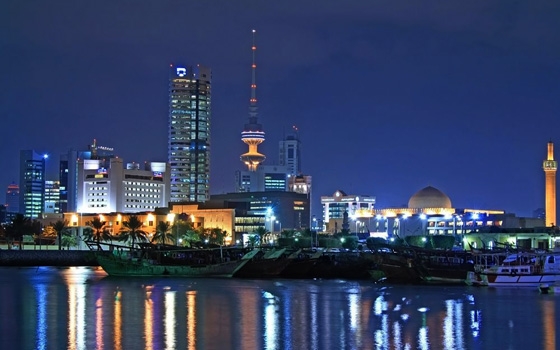Strong crude prices allowed Kuwait to record a large surplus in the first nine months of the current fiscal year as was the case in the previous few years.
The fiscal surplus stood at around KD16.1 billion ($56.6 billion) in the first nine months of the 2012-2013 fiscal year, which began on April 1, according to National Bank of Kuwait (NBK).
After remaining flat at around KD 14.7 billion in the previous month, the budget surplus for the first nine months of the fiscal year jumped to KD 16.1 billion in December before allocations to the Reserve Fund for Future Generations (RFFG), it said in its latest bulletin.
The surplus, equivalent to 33 per cent of annual 2012 GDP, was lifted by a combination of soaring revenues and comparatively softer spending growth, it said.
"With reported spending likely to pick-up pace in the remaining three months of the year, the final budget surplus could close at up to KD 14.0 billion," the report added.
It showed total revenues climbed to KD 24.3 billion in the first nine months of FY 2012/2013, about KD 2.8 billion higher than a year ago.
Oil revenues continued to rise rapidly by some 13 per cent despite declining crude prices, the report said, adding that Kuwait Export Crude prices were down by just one per cent over the same period. Additionally, non-oil revenues have also risen strongly by a large 26 per cent on the back of higher miscellaneous revenues and fees.
Government spending accelerated to KD 8.2 billion in December, only KD 0.1 billion below levels seen in the comparable period of the previous year, the figures showed.
Total spending was up by some KD 1.2 billion from November, compared to a faster pick-up of around KD 2.7 billion a month earlier.
"With three-quarters of the current fiscal year already behind us, just 38 per cent of the budget has been spent – lower than usual for this stage of the year. Nevertheless, with spending typically accelerating in the final months of the year, there is still scope for expenditures to pick-up going forward," the report said.
It showed that current spending, which was up year-on-year in December for the first time in FY 2012/2013, reached KD 7.4 billion.
It noted that current expenditures continue to be driven by the 'wages & salaries' component, which was up by some 17 per cent.
"The remaining months are likely to see acceleration in the larger 'miscellaneous expenditures & transfers' segment, supported by an expected rise in inter-governmental transfers – including large transfers to cover the actuarial deficit in the social security fund."
Capital spending, on the other hand, reached KD 0.7 billion in December – almost KD 0.2 billion lower than a year ago, the figures showed.
"In summary, the data show that despite a decent pick-up in government spending, soaring revenues have continued to generate a huge run-up in the budget surplus. The surplus is likely to dip in the final quarter as spending accelerates. Nevertheless, the government's fiscal position is likely to remain extremely strong."
Emirates 24|7
13 March






















































